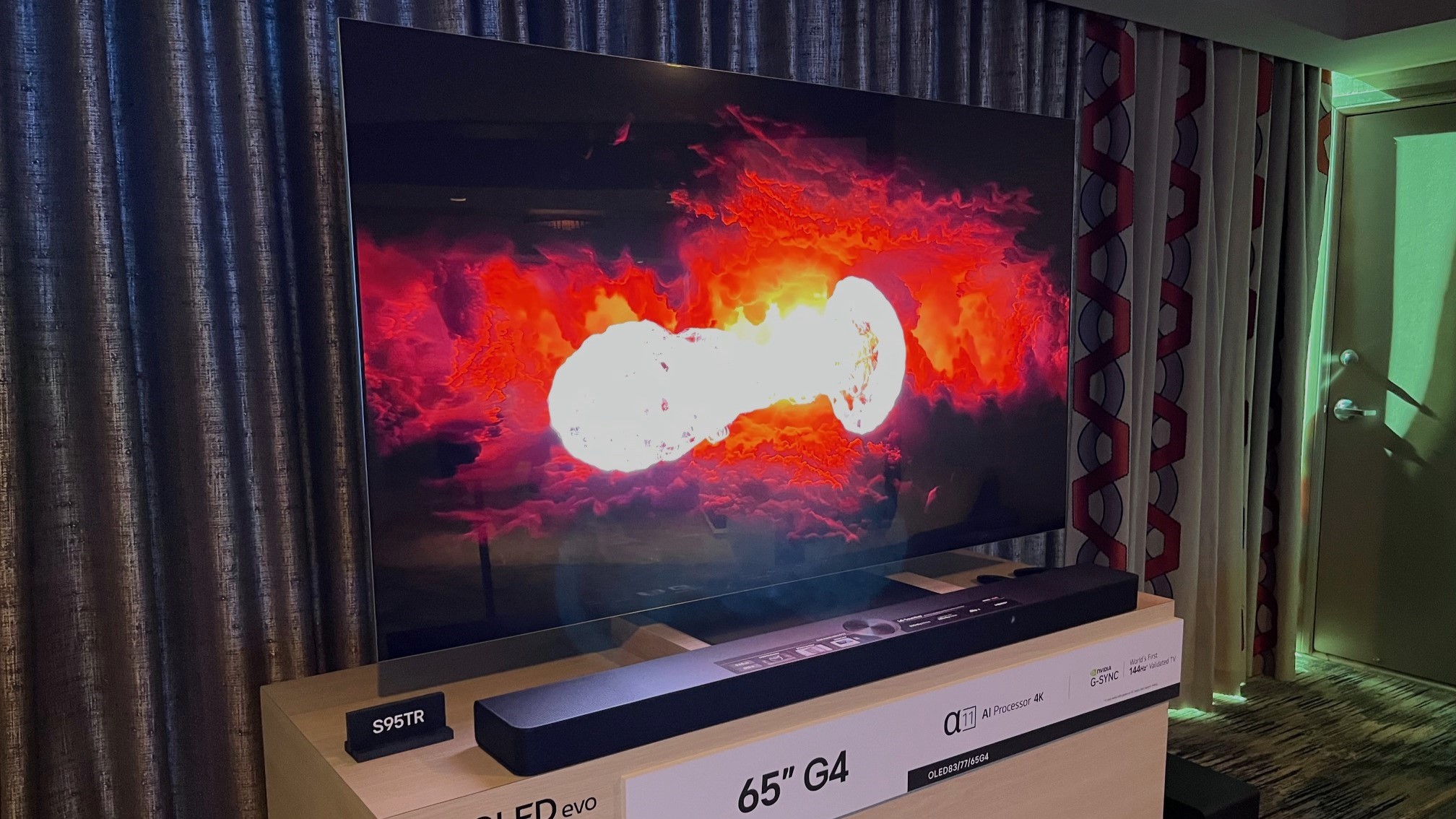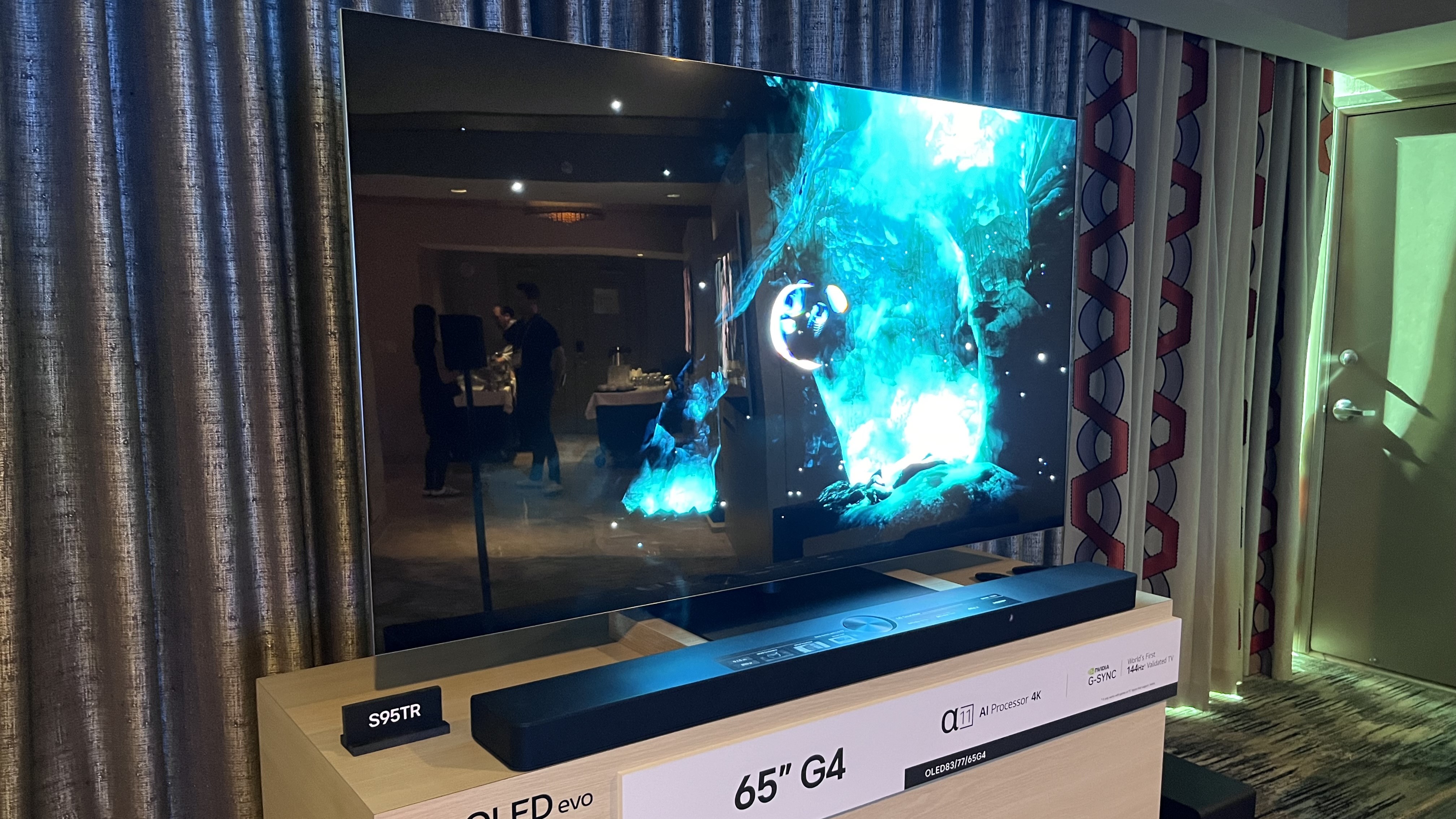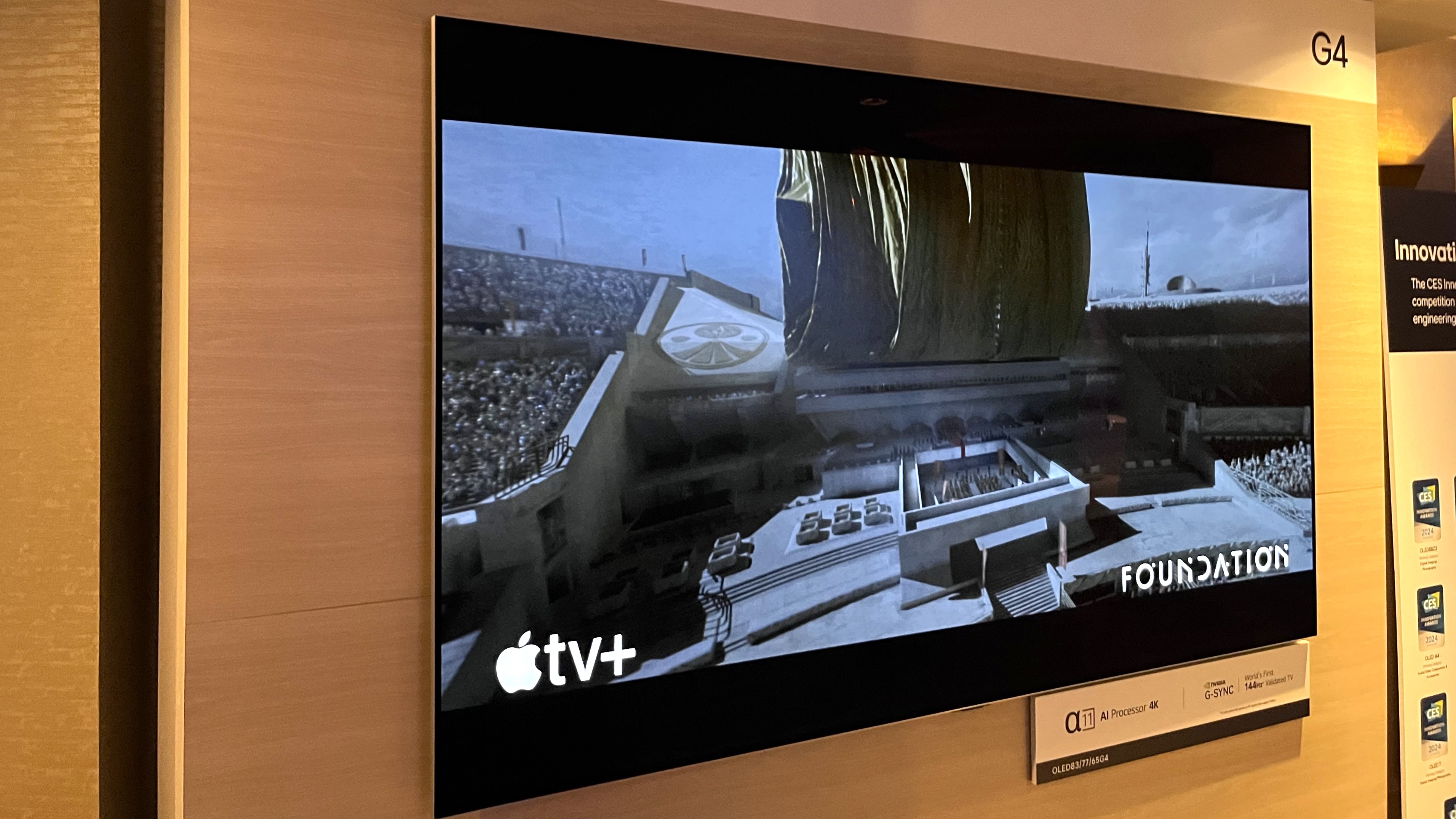The LG G4 OLED TV is official – here are the confirmed upgrades
Here's everything confirmed so far about the follow-up to the LG G3

The LG G4 OLED TV has been revealed ahead of CES 2024, with confirmation of some details of what we can expect from the LG G3's successor, including specs, sizes and more. LG unveiled its full 2024 OLED TV lineup, which has received 12 Innovation Awards from the Consumer Technology Association (CTA) – the organization behind CES – for its upcoming OLED TVs, which isn't surprising based on what we've been told about them so far, including the LG C4.
The LG G4 is the follow-up to the LG G3, which we found to be an incredibly impressive high-end TV with superb picture quality, stunning brightness levels and top-quality gaming features in our full LG G3 review. It just missed out on our best TV or best OLED TV lists at the end of 2023, but not because it isn't an excellent display – other TVs simply managed to outshine it in some areas, especially in value and affordability. But this is a new year, and the G4 is a new TV.
Below, we look at everything confirmed regarding the LG G4. We'll also cover when the LG G4 could be released and how much it's likely to cost, and what we still need to know about it, which hopefully can be answered when we get our eyes on it at CES.
LG G4 OLED TV: Release date and pricing

When LG revealed the US pricing for its 2024 OLED TVs, including the LG C4, in late February, we were disappointed to see that nearly every size had seen its price go up compared to last year's models, with the exception of the 83-inch G4, which has the same release price.
In early April, LG followed up with the UK and Australian pricing for its 2024 OLEDs and to celebrate, it is running a sale from April 3 to 16. The sale isn't just for the G4 but also covers its other 2024 TVs, including the C4. The best part? If you pre-order between now and April 16, you can get a free soundbar.
Below, you'll see the US, UK and Australian prices of the LG G4, including for the returning 97-inch model:
- OLED55G4: $2,599 / £2,399 / AU$4,199
- OLED65G4: $3,399 / £3,299 / AU$5,299
- OLED77G4: $4,599 / £4,490 / AU$7,999
- OLED83G4: $6,499 / £7,000 / AU$9,999
- OLED97G4: $24,999 / (around £19,522; AU availability TBC)
We estimated before official pricing was released that there would be a price increase over the G3's launch prices due to inflation and this was correct. However, in a welcome bit of news, the price rise has only been by $100 on almost every model, with the 83-inch G4 even staying the same. The 97-inch model is being released at the same price as the LG 97-inch G2 (there was no 97-inch G3).
Get daily insight, inspiration and deals in your inbox
Sign up for breaking news, reviews, opinion, top tech deals, and more.
LG G4 OLED TV: What we know
LG has confirmed several upgrades to the LG G4 including a new chip which it says will improve brightness further, will boost overall picture quality, and should be more responsive. The chip, called the Alpha 11, is the same as the one in LG's new flagship wireless OLED TV, the LG M4.
The Alpha 11 AI chip will feature will push the Brightness Booster Max tech further, and LG says there will be a clear rise in peak HDR brightness levels compared to the G3, although this will be on peak highlights (3% of the screen) rather than full screen.
LG's AI Picture Pro and AI Sound Pro return with some added new features including 'Director tone' where the picture will be analyzed and improved, but "as the director intended" according to LG, which is a bold claim for AI-based processing. In terms of sound, the AI Sound Pro processing will now upmix audio to 11.1.2 channels of sound; that's two more than last year, which was 9.1.2 channels.
Speaking of sound, the Alpha 11 processor supports wireless lossless Dolby Atmos and DTS audio to the higher-end models in LG's new range of soundbars. This means you won't need to give up an HDMI port to get bigger sound, which is great.
The LG G4 will be available in 55-inch to 97-inch sizes, and unlike last year's G3, the micro lens array tech (MLA) that helps improve brightness will also feature in the 83-inch model of the G4 as well as the 55, 65 and 77-inch (but not the 97-inch).
LG also confirmed that the G4 will come with a stand included in the box in some regions. One of the G3's biggest frustrations was its pricey optional stand (it came with a wall mount only in the box), but this time around LG has sorted this problem, although we don't as yet have confirmation as to which countries will get the stand.

In terms of gaming, the G4 has had a couple of upgrades, one of which is the ability to process up to 144Hz refresh rate, even at 4K (up to its 83-inch model). Although this won't apply to console gamers – consoles max out at 120Hz – PC gamers will welcome this new upgrade.
The G4 is also AMD FreeSync Premium and Nvidia G-Sync certified for a smoother gaming experience, as well as including LG's Game Optimizer menu to allow gamers to tweak settings for the optimal gaming experience. Although we don't have any more specific details, it's likely this will run similarly to the Game Optimizer on last year's LG OLEDs, with the inclusion of the 144Hz refresh rate option.
LG G4 OLED TV: What we still need to know
Whilst we've had some hands on time with LG G4, there are a few things we're planning to look more into when we test the new TV.
Firstly, the sound. One of the weaker parts of the LG G3 was its audio quality, with its built-in speakers not matching the quality it gave with its picture. Rival OLEDs such from Panasonic, Sony, Phillips and Samsung – especially the Samsung S95C – had better built-in sound than the G3. Although in most cases you're better off buying one of the best soundbars, it's always nice to have the option of better built-in sound.
LG seems to be focusing heavily on brightness levels with the inclusion of both MLA and brightness booster max tech in the Alpha 11 chip, but we were only given info regarding brightness on a small window and not full-screen brightness. When we get our hands on the G4 we'll be able to test it ourselves, but last year Samsung, thanks to QD-OLED technology, offered better full-screen brightness overall in its OLED TVs, and we're hoping LG will have addressed this.
You might also like

James is the TV Hardware Staff Writer at TechRadar. Before joining the team, he worked at a major UK based AV retailer selling TV and audio equipment, where he was either telling customers the difference between OLED and QLED or being wowed by watching a PS5 run on the LG 65G2. When not writing about the latest TV tech, James can be found gaming, reading, watching rugby or coming up with another idea for a novel.